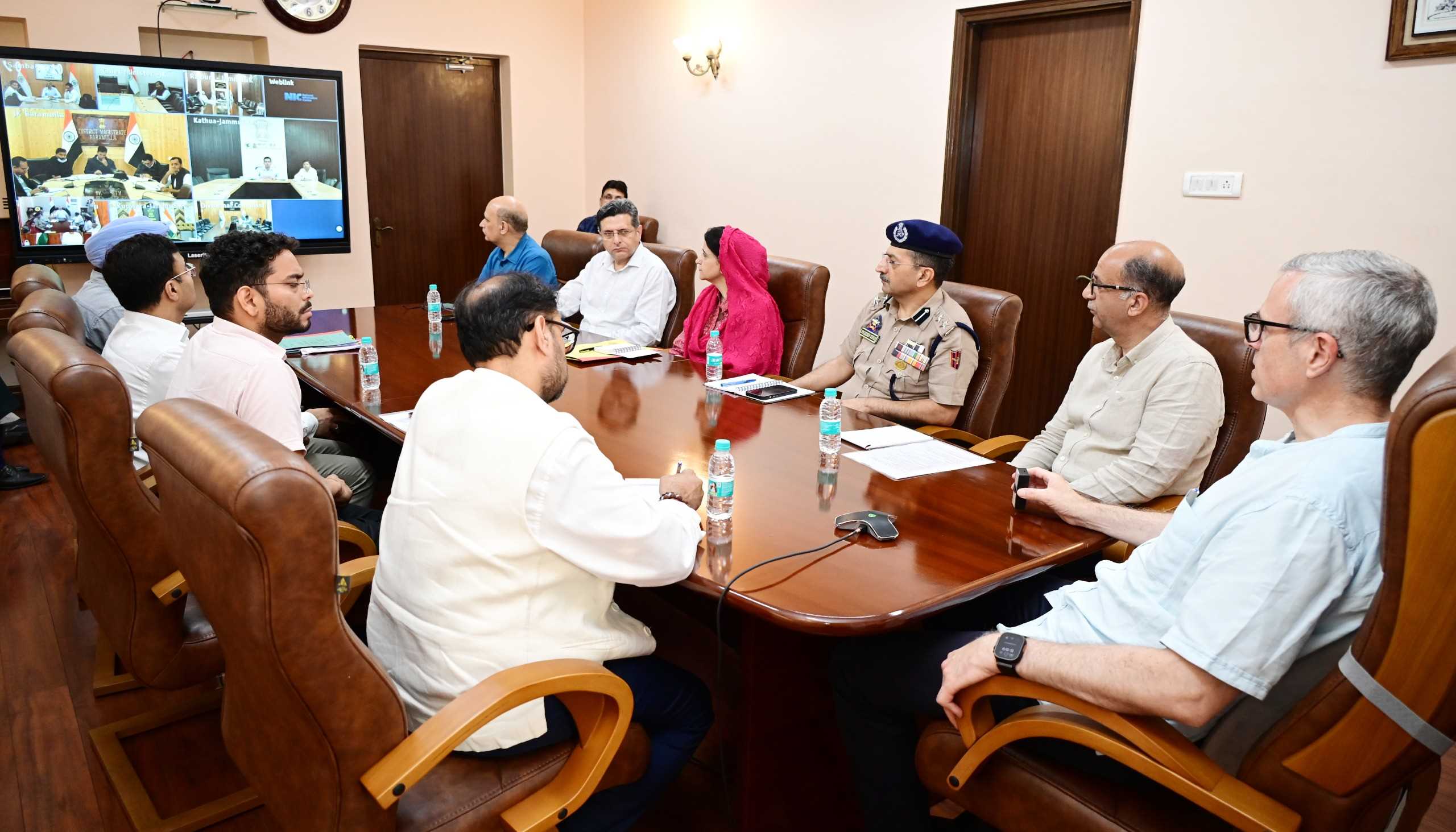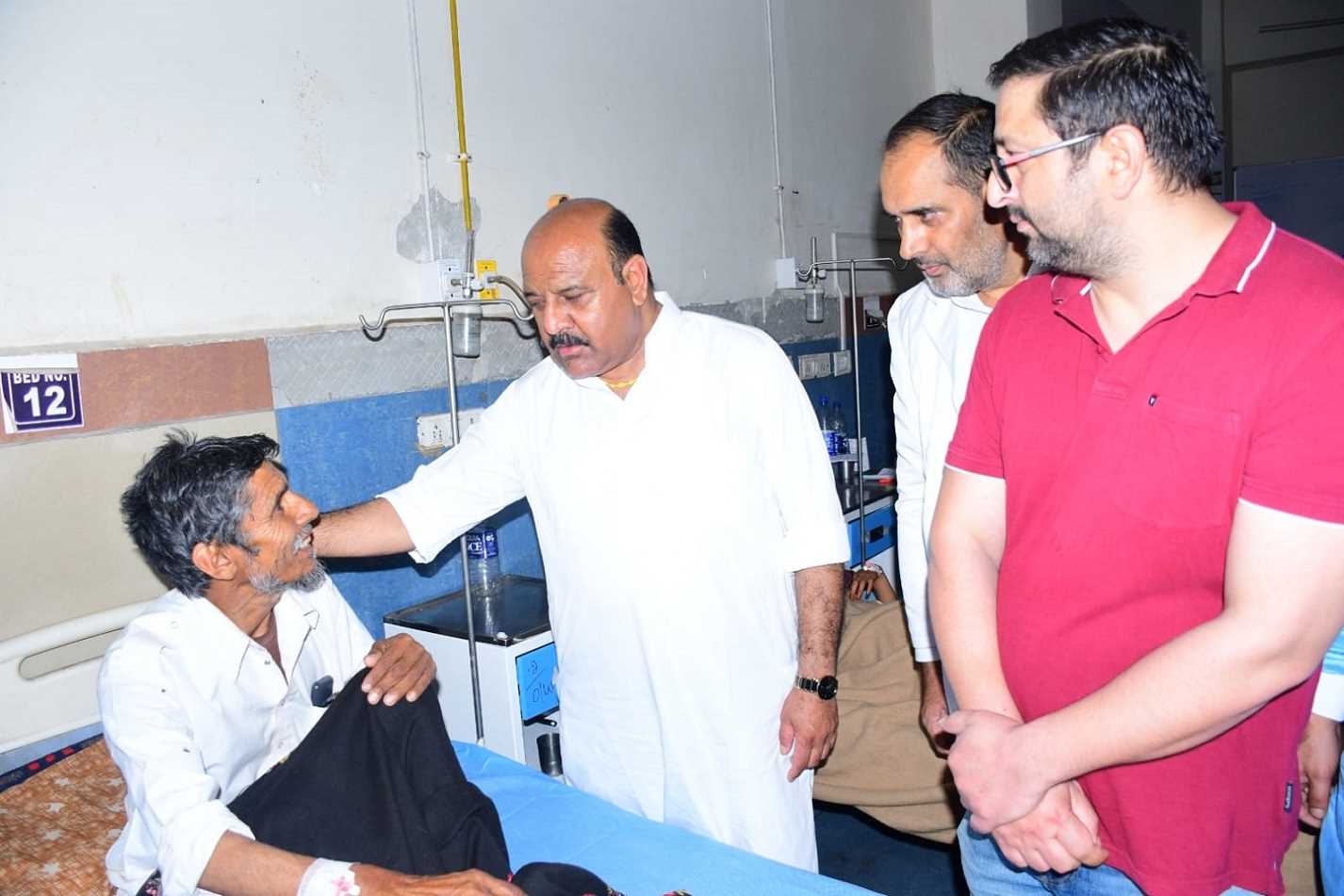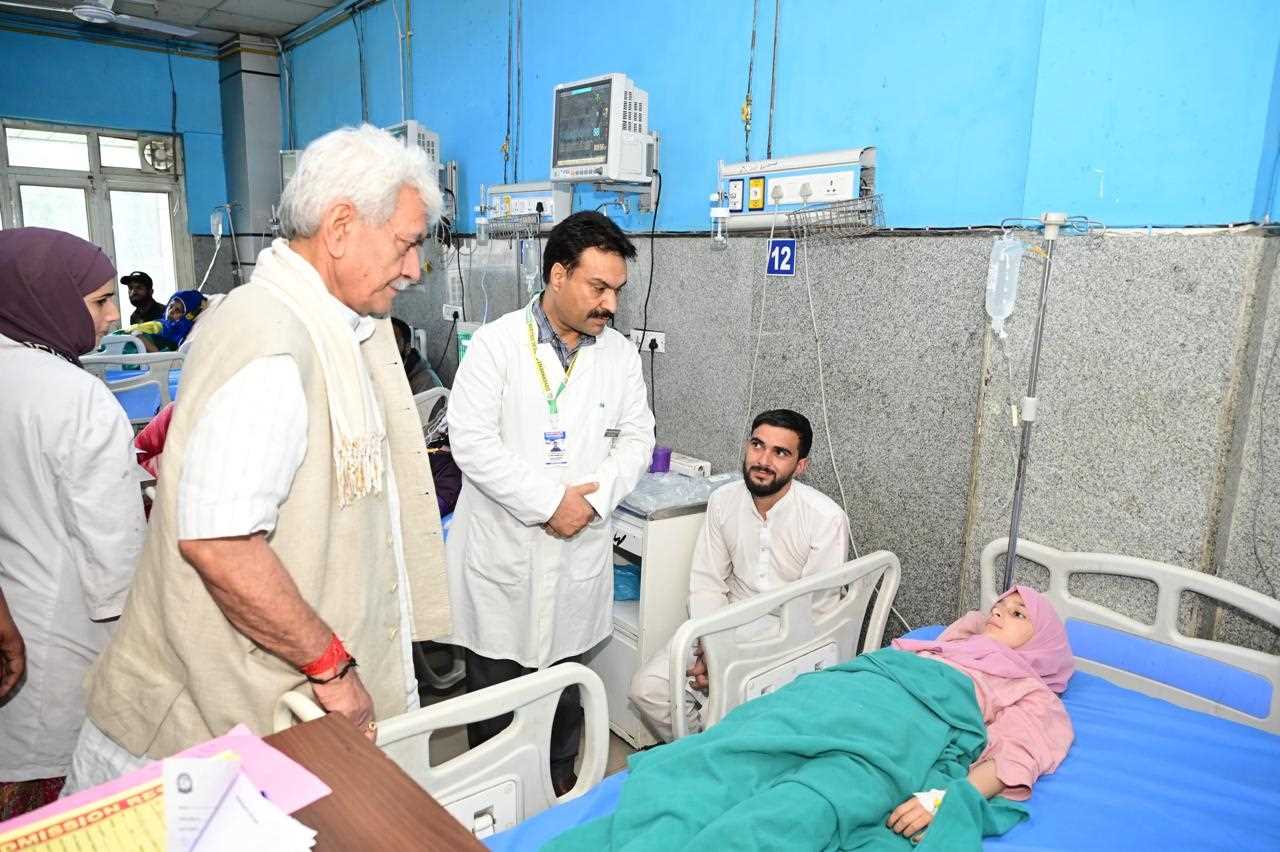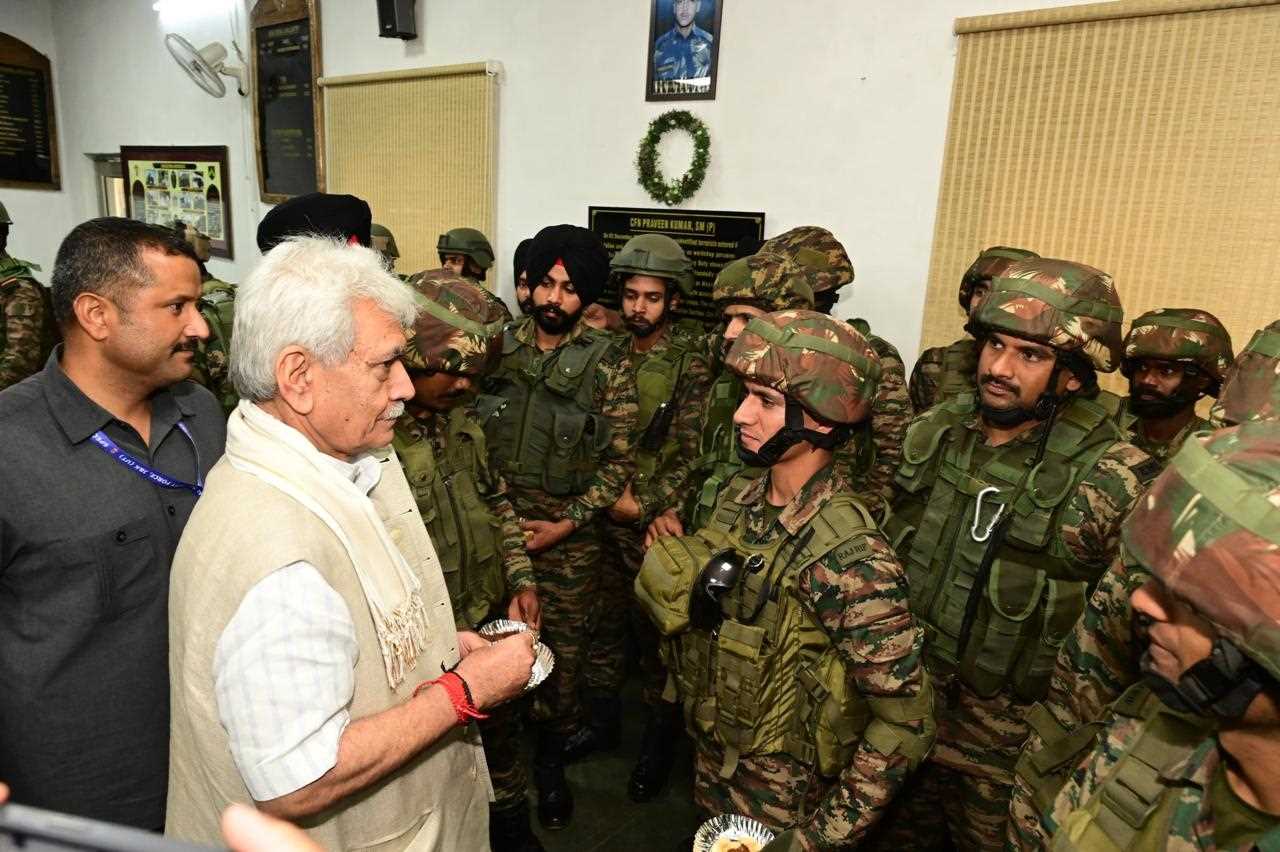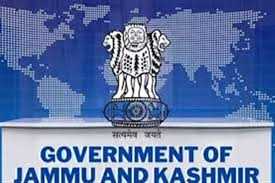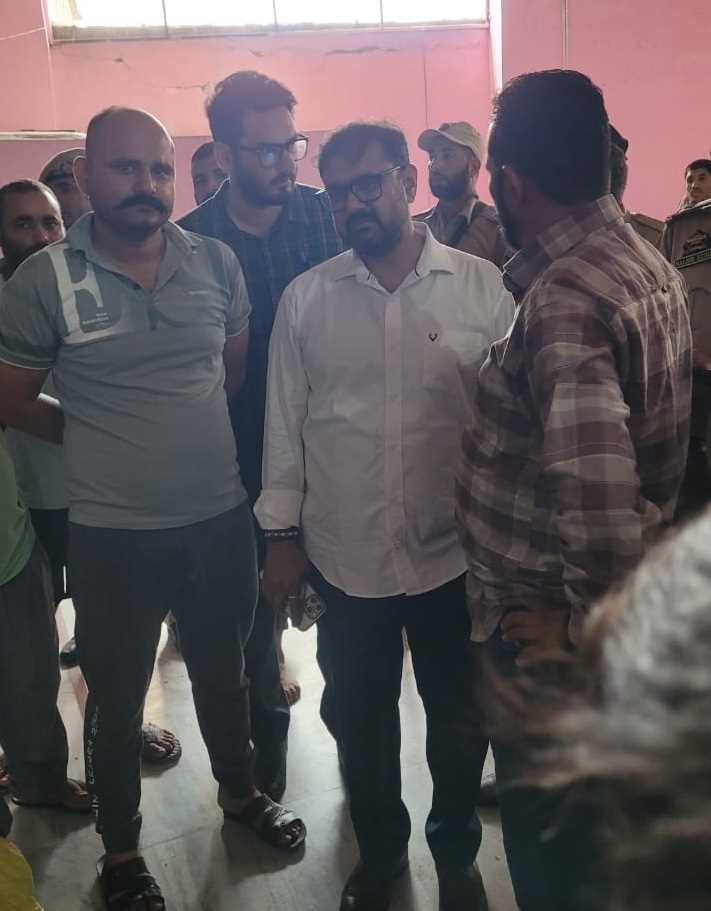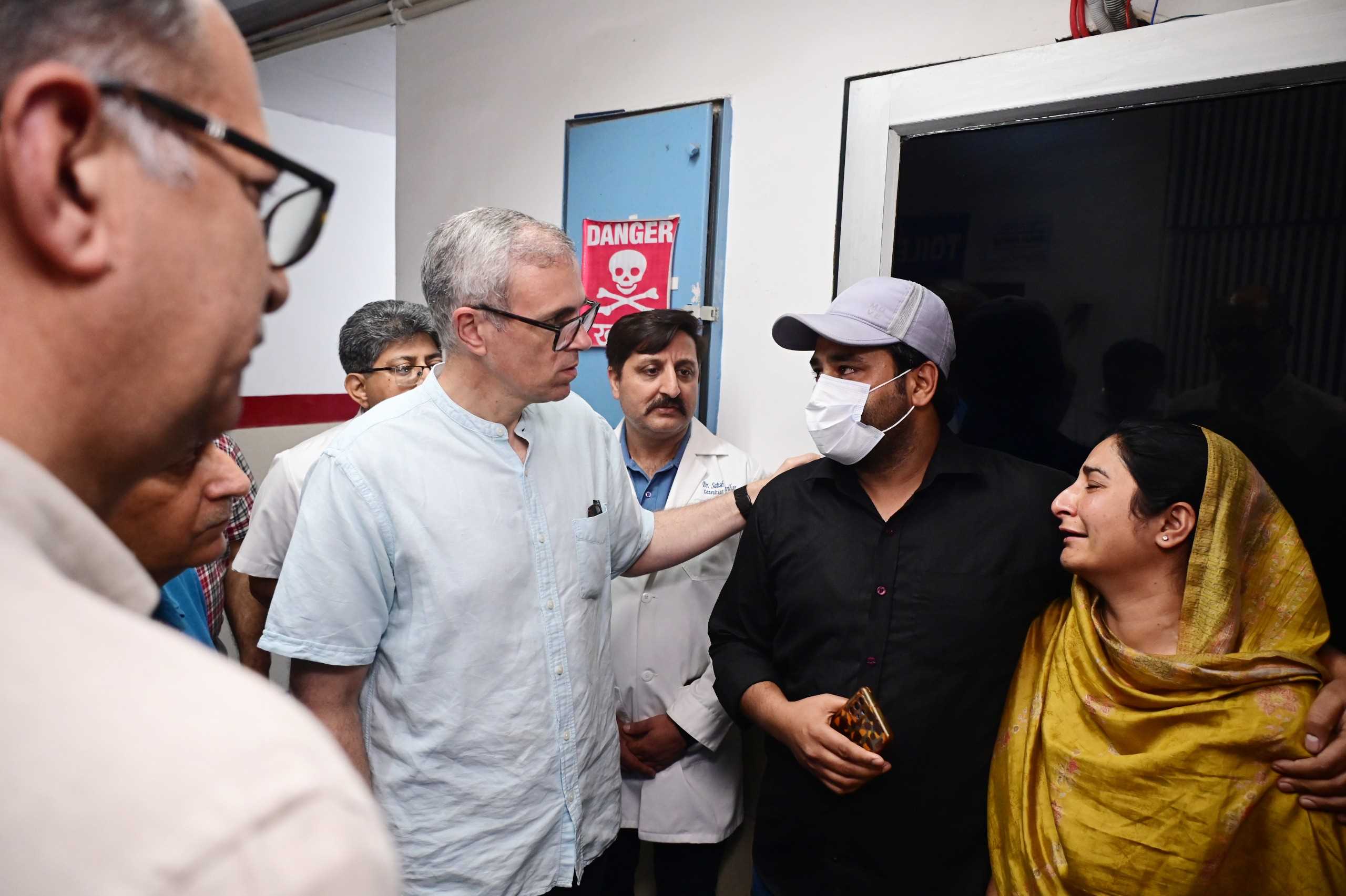Ever since the partition, Pakistan has been a constant source of disruption for India, and Kashmir has been used as a pawn in its game. The ISI and Pakistan’s deep state have manipulated Kashmir for their vested interests, and it’s something we’ve endured for decades. The countless terror attacks, the loss of lives—be it the genocide of Kashmiri Pandits, an inseparable part of our social fabric, or the attacks on the Muslim community—have left scars across generations. Since 1947, Pakistan has continuously attempted to destabilize Kashmir, pushing its narrative of ‘Jihad’ and ‘Azadi.’ They have played the religious card, misled countless youth, and led us to bury two generations in graves. However, I won't dwell on the past again, as I’ve addressed that in my previous writings. After 2019, for the first time in years, there was a glimmer of peace. Every Kashmiri breathed a sigh of relief. The tireless efforts to dismantle terrorist networks were showing results, and we, as a people, dared to hope for a future without violence. But deep down, I knew that this peace was fragile. Pakistan’s deep state, always lurking in the shadows, would not miss an opportunity to destabilize us
The terror attack that unfolded on April 22, 2025, in the Baisaran Valley of Pahalgam will forever be etched in Kashmir’s history as a black day. Five terrorists targeted non-Muslim tourists, resulting in the tragic deaths of 28 innocents and leaving 20 others wounded. The attackers singled out victims based on their religion, forcing them to recite Islamic verses to identify non-Muslims. Among the deceased were 25 tourists and a local Muslim pony operator who, in an act of courage, tried to protect the tourists. The Resistance Front (TRF), an offshoot of the notorious Lashkar-e-Taiba, initially claimed responsibility for the attack, only to retract the statement later. But the tragedy sparked an overwhelming outcry across Kashmir. Local Muslims, deeply shaken by the violence, took to the streets in protest, chanting ‘Pakistan Murdabad’ and denouncing the attackers. The streets, as well as social media, were flooded with the anguish and anger of the common Kashmiri. The question on every Indian’s mind was how the government would respond — both politically and militarily — to this act of terror. The answer came swiftly, and with it, a name that resonated deeply: ‘Operation Sindoor.’ In the following section of my article, I will delve into the key aspects and significance of this operation.
In response, India’s political leadership moved swiftly. The first steps were diplomatic and strategic, designed to hit Pakistan where it hurts, while maintaining a stance of measured response. Pakistan’s diplomatic presence in India was severely curtailed, with Indian authorities expelling Pakistani diplomats and deporting Pakistani citizens residing in India, signalling India’s resolve against cross-border terrorism. India also took the unprecedented step of shutting down Pakistan's consulate in Mumbai and pulling out of several diplomatic engagements, sending a clear message to Islamabad about India’s intolerance for its support of terrorist groups. Additionally, the Indus Water Treaty became a critical lever in India’s political arsenal. With tensions running high, India considered using its control over the treaty to restrict Pakistan's water supply from the Indus River basin, effectively using the resources to apply pressure on Pakistan while avoiding a direct military conflict. India signalled its willingness to reconsider the treaty in light of Pakistan’s continuous support for terrorist organizations targeting India.
On May 6, 2025, in an act of decisive military retaliation, India launched Operation Sindoor. This operation was a direct response to the Pahalgam attack and was aimed at dismantling terrorist infrastructure in Pakistan and Pakistan-occupied Kashmir. The operation marked a new phase in India's fight against terrorism, combining precision military strikes with a strategic diplomatic approach to ensure that Pakistan would feel the full weight of India's resolve. Operation Sindoor began with a series of 24 airstrikes conducted by the Indian Air Force, using Rafale jets equipped with SCALP missiles and AASM Hammer bombs. The targets were carefully selected terrorist infrastructure sites in Bahawalpur, Sialkot, Muzaffarabad, Kotli, and Bhimber, areas known to be hotbeds of terrorist activities linked to groups such as Lashkar-e-Taiba and Jaish-e-Mohammed. The precision of these strikes ensured that no civilian areas were targeted, demonstrating India's ability to conduct targeted military operations with minimal collateral damage. The operation, lasting only about 23 minutes, was described by officials as "focused and non-escalatory," a demonstration India's careful calculation to avoid an all-out war while sending a firm message to Pakistan. The strikes were executed with the precision of a surgeon's scalpel, designed to dismantle the heart of Pakistan's cross-border terror infrastructure.
One of the most striking moments of Operation Sindoor came during the press briefing that followed the strikes. The briefing, held at India’s National Media Centre, was addressed by three key figures from different walks of life—each representing a diverse facet of India’s pluralistic society. Colonel Sofiya Qureshi, a Muslim officer in the Indian Army's Signal Corps, was joined by Wing Commander Vyomika Singh, a Sikh daughter of the soil and a decorated helicopter pilot in the Indian Air Force, and Vikram Misri, the Foreign Secretary, a Kashmiri Pandit. This moment became symbolic of India’s commitment to unity and diversity in its fight against terrorism. The sight of a Muslim, a Sikh, and a Hindu standing together, as representatives of India's strong national identity, sent a powerful message: terrorism is a threat to all faiths and all communities. It also underscored that India's fight against terrorism is not just political or military but a collective effort across all segments of society. The image of these three individuals, each representing a different part of India, addressing the media together, resonated deeply not only within the country but internationally as well.
Kashmir, often seen as a region divided by the narratives of conflict, witnessed a wave of solidarity following the Pahalgam attack and the subsequent operation. The streets of Srinagar, Anantnag, and other cities witnessed gatherings where locals expressed unequivocal support for Operation Sindoor. Kashmiri Muslims, many of whom had suffered under the hands of terrorists for years, showed visible signs of unity with the Indian military.
In one emotional response, Mohd Amin (name changed for privacy), a local shopkeeper from Srinagar, stated, "We have lived under the shadow of terror for decades, and this operation is the first step towards ending the madness. We support the Indian Army for their efforts in dismantling the networks of violence that have torn apart our families." Another resident, Javed, a university student from Anantnag, echoed the sentiment, adding, "It’s not just the security forces’ job; it’s our fight too. We need peace to return to Kashmir, and India’s action today is a signal that they are serious about our security and future."
As the sun sets behind the snow-capped peaks of Pahalgam, and the Valley slowly exhales from the smoke and sorrow of April 22, one truth stands tall: India is not broken, it is awakened. Operation Sindoor was not just about retaliation; it was about reclaiming dignity, peace, and justice. It was about telling every widow that her husband’s sacrifice meant something, every orphan that their parent’s death won’t go unanswered, and every Kashmiri, regardless of faith that their tomorrow is being rebuilt, brick by brick, by those who bleed for the tricolour. This is not just a military campaign. This is a collective prayer, whispered in mosques, gurudwaras, and temples, that terror will never outlive truth, that those who light the pyres will also light the path ahead. And as we move forward, hand in hand, we must remember: India doesn’t just fight wars. India heals. India builds. India rises because when blood is Sindoor, martyrdom is sacred, and unity is our weapon, no enemy stands a chance.
Email:------------------------- esoulofkashmir1@gmail.com


